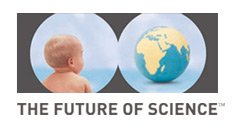Ingo Potrykus

Studies in Zoology, Botany, Genetics, Biochemistry, Philosophy, Physical Education at Universities in Cologne and Erlangen.
PhD in Plant Genetics 1968 at Max-Planck-Institute for Plant Breeding Research, Cologne, Germany; Habilitation in Botany 1982 at University of Basel, Switzerland.
Ass. Professor, Institute of Plant Physiology, Stuttgart-Hohenheim 1970-74. Research Group Leader, Max-Planck-Institute for Genetics, Ladenburg-Heidelberg 1974-76; Research Group Leader, Friedrich Miescher-Institute, Basel, Switzerland 1976-86; Full Professor in Plant Sciences, Swiss Federal Institute of Technology (ETH), Zürich 1986-99. Research team in the range of 60 members on competitive grants and core funding.
Contributions to food security in developing countries. Focusing on development and application of genetic engineering technology for and to "food security" crops such as rice (Oryza sativa), wheat (Triticum aestivum), sorghum (Sorghum bicolor), and cassava (Manihot esculenta).
Focusing on problems difficult to solve with traditional techniques and in the areas of disease- and pest resistance, improved food quality, improved yield, improved exploitation of natural resources, and improved bio- safety.
Inventor and Promoter of "Golden Rice", a sustainable contribution to reduce vitamin A-, iron-, and protein malnutrition.
Ca. 340 publications in refereed journals; ca. 30 international patents.
Lectures and courses in plant biology and plant biotechnology in the faculties of Biology, Agronomy, Pharmacy, Forestry, Environmental Sciences; International Training Courses for e.g. EMBO.
Since the retirement engaged in advancing ‘Golden Rice’ in an international, humanitarian initiative through the ‘product development’ phase and the ‘deregulation’ phase to make it available free of costs and limitations to developing countries as a sustainable contribution to reduction in vitamin A malnutrition. Chairman of the ‘Humanitarian Golden Rice Board & Network.
KUMHO (ISPMB) Science International Award in Plant Molecular Biology and Biotechnology 2000.
American Society of Plant Biologists (ASPB) Leadership in Science Public Service Award 2001. Crop Science of America (CSSA) 2001, CSSA President’s Award 2002, European Culture Award in Science
2002, Honorary Doctor, Swedish University of Agricultural Sciences 2002. Member of Academia Europaea, Swiss Academy of Technical Sciences, Hungarian Academy of Sciences, Academia Bibliotheca Alexandria, Pontifical Academy of Sciences, World Technology Network. Cover TIME Magazine July 31, 2000, Honorary Doctor, University of Freiburg, Germany 2007.
“Top100 living contributor to biotechnology”, elected by the peers of the journal “Scientist” in 2005.
“The most influential scientist” in the area of Agricultural, Industrial, and Environmental Biotechnology for the decade 1995-2005, elected by the peers of Nature Biotechnology 2006.
Biofortification, a cost-effectiveintervention for micro-nutrient deficiency
Despite intensive traditional interventions, micro-nutrient deficiency takes a daily toll of ca. 6’ 000 lives. With the concept of biofortification an alternative, novel, andcomplementing approach is under development. This strategy uses the power of genetics to improve the micro-nutrient content in crop plants, especially those used as major food source by micro-nutrient deficient populations in developing countries. Genetic improvement is possible via traditional breeding or genetic engineering. The first and most advanced example on these lines is a genetically modified rice which provides sufficient amounts of provitamin A from standard daily diets of rice-dependent societies, to prevent vitamin A-malnutrition – “Golden Rice”. The activation of the biochemical pathway leading to synthesis and accumulation of provitamin A in the starch-storing tissue of the seed was only possible via genetic engineering. The Golden Rice project was from the onset, and still is a humanitarian project of the public domain. It is not, as the GMO opposition likes to pretend, a PR plot of the agbiotech industry. Product (variety) development and deregulation and final release to the public is under the control and guidance of an NGO – the Humanitarian Golden Rice Board. Development of agronomically superior and locally adapted varieties is under development in public rice research institutes in developing countries. For reasons of regulatory costs all different national varieties are developed via traditional breeding from one single selected transgenic event. Once deregulated the local varieties will be handed out tosubsistence farmers by public seed boards at no extra costs. All technology is contained in the seed. The farmers will use part of their harvest for the next sowing, and they will use the technology free of any licence fee within the framework of a humanitarian licence signed by the national public rice institutions. There are two limitations: the farmer or trader must not make a profit from Golden rice beyond USD 10’ 000 per year and export is not permitted. These conditions enable free use for the target population of the project, and they are a consequence of the fact, that because of lack of support from the public domain, the humanitarian project required support from the private sector. Due to GMO-regulations Golden Rice will not be available before 2012. Ex ante studies predict a substantial impact of Golden Rice on health and economy. A Worldbank study (1) published in 2005 calculates a yearly benefit for Asia of ca. USD 15.2 billion and a study specifically for India (2) predicts that up to 40’ 000 lives per year could be saved with strong support from the government. As the costs per life year saved are USD 3 compared to USD 156 costs of the, so far, most efficient alternative intervention (free distribution of vitamin A capsules) biofortification is the most sustainable intervention. This first excample of vitamin A-biofortification in rice is now followed by biofortification for iron, zinc, vitamin E, and essential amino acids, in rice, maniok, sorghum, and banana (Bill&Melinda Gates Foundation Grand Challenges in Global Health No.9
(1) GM Rice Adoption: Impact for Welfare and Poverty Alleviation. K Andersen, LA Jackson, CP Nielson. J. Economic Integration 20, 2005
(2) Genetic Engineering for the Poor: Golden Rice and Public Health in India. A.Stein, HPS Sachdev, M Qaim. World Development 36, 144-158 (2008)
(3) www.goldenrice.org





